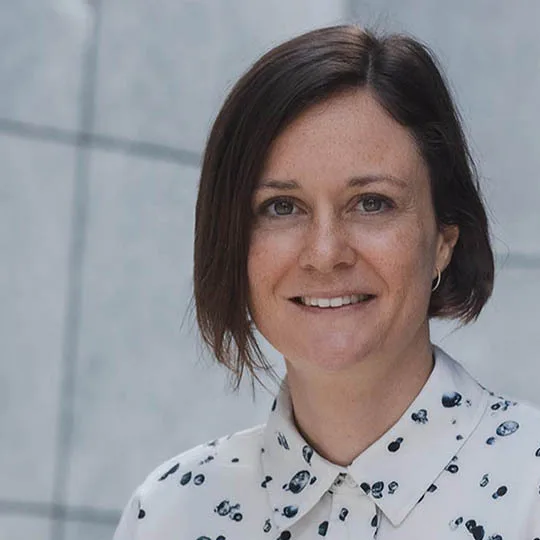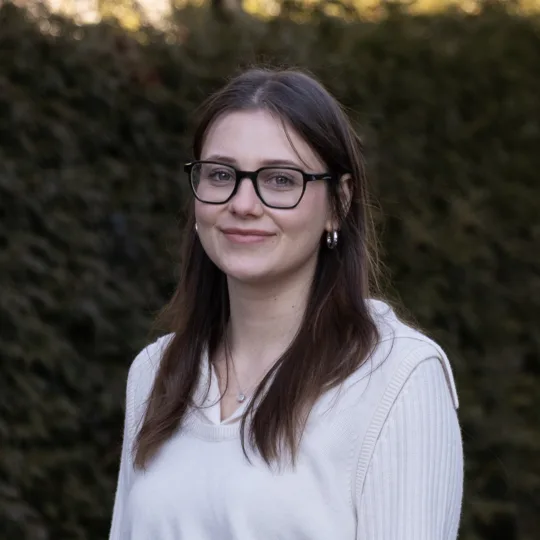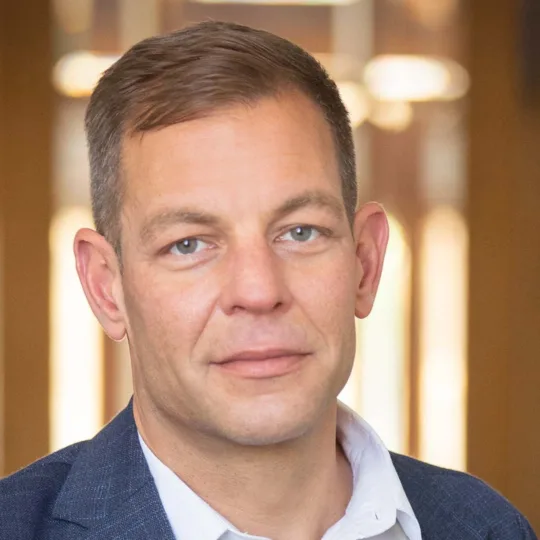Competition helps to nurture and recognise talent
The Science Olympiad has supported bright and talented students with competitions in ten subjects, from mathematics to philosophy, for 20 years now – a good opportunity to find out more about the Science Olympiad from its Co-CEOs, Cyrille Boinay and Mirjam Sager.
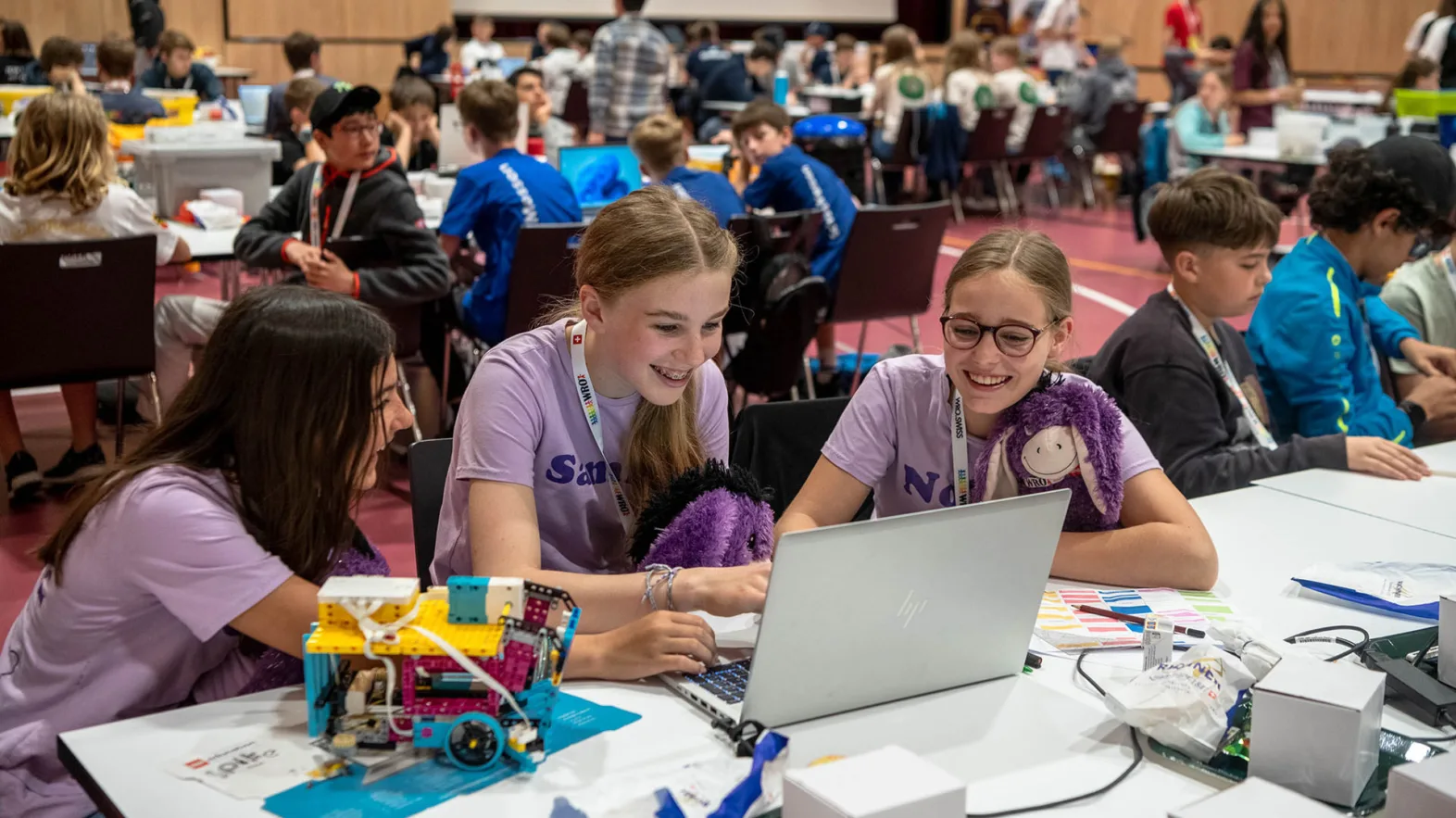
The Science Olympiad is committed to promoting talent. How does it do that?
Cyrille Boinay: Mainly by facilitating contacts between young people, students and scientists. Together they can do research, experiment and have fun. This creates space for exchange, friendship, and new impulses and ideas. These exchanges take place at regional, national and international levels. And the competition format not only helps to discover and nurture talent, it is also a way of recognising it.
We count on secondary school teachers to motivate their students to compete in the Science Olympiad. In addition, more than 450 volunteers provide support and share their expertise at camps and workshops.
Why is this work important for Switzerland?
Mirjam Sager: It is important because there are many talented young people in Switzerland who are interested in science. However, parents, schools and teachers often lack the time or money to provide additional support for these young people. Both for the personal and professional development of young people, and for science and business in Switzerland, that is a pity. Important talent is being lost. This is where we can make a contribution – along with many other civil society initiatives, of course.
There is another important aspect: our events bring together students from Ticino and the French and German-speaking parts of Switzerland. This creates social cohesion between young people, some of whom may not have peers with the same interests in their own schools. That's good for them and motivates them. We also encourage young people to get involved in the Science Olympiad or similar organisations later in life.
Cyrille Boinay
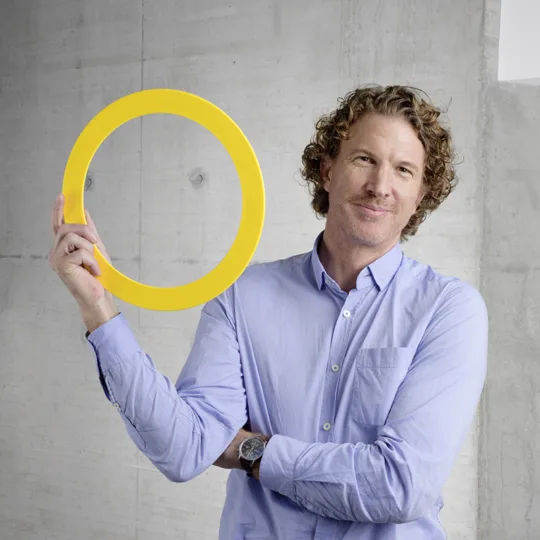
Cyrille Boinay has been Co-CEO of the Science Olympiads since 2017. He is an economist and also works as a start-up coach at Innosuisse and as a lecturer in the field of branding. At Science Olympiad, he is responsible for the areas Finance, Fundraising and Network.
Who is the Science Olympiad aimed at?
Cyrille Boinay: Our competitions are aimed at young people between 14 and 19, although some Olympiads, for example in robotics, also have younger participants. We also work with school administrators, student councils, teachers and parents to help them support talented young people.
How does the Swiss Science Olympiad contribute to the international network of Science Olympiads?
Mirjam Sager: Switzerland has already organised three major international Olympiads, most recently the International Chemistry Olympiad at ETH Zurich in 2023. In addition to the competition, we also offered the participants many learning opportunities. For example, we organised visits to research projects and a research fair. Focusing on chemistry as a science that can make the world a better and more sustainable place was important to us.
Furthermore, the Swiss contributors are able to share their technical and teaching expertise with the international network. They work with colleagues from up to 100 countries to develop, translate and mark exam questions.
It is important to the Swiss Science Olympiad that more young women have access to these Olympiads, which tend to be male-dominated. That is why they are on the board of the European Girls' Mathematical Olympiad and have launched its computer science counterpart, the European Girls' Olympiad in Informatics.
Mirjam Sager
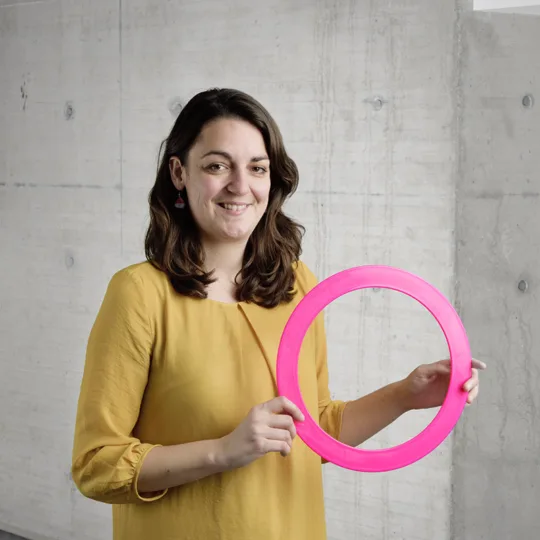
Mirjam Sager has been Co-CEO of the Science Olympiad since 2022. She is the Head of Communication and Volunteering. She has a degree in literature and a post-graduate qualification in strategic and corporate communications.
You are celebrating your 20th anniversary this year. How have the Science Olympiad and your work changed over the years? What makes them special?
Mirjam Sager: What started small became bigger and bigger: we went from five Olympiads to ten; from 700 participants to 8,000. We went from only a few volunteers to 450, and from one Secretariat employee to six. Even though we have been through a lot of changes, we try to maintain a democratic system where much gets discussed. In recent years we have also been working on issues such as equal opportunities and professionalising volunteering.
What's special about what we're doing is that it's meaningful to young people and to schools. And when we make changes, we always find a solution that works for everyone, even though the various specialised Olympiads and club cultures can be very different.
Where is there still potential? Where do you see the Science Olympiad in 20 years?
Cyrille Boinay: I think the most important thing is that we continue to improve the quality of what we offer, and do even more to promote young talent. Our focus over the next four years will be on three areas: promoting individual disciplines, interdisciplinary skills and networking. These measures are designed to benefit participants even more. Our medal tally in international competitions, which is already very good compared to countries like ours, should continue to improve. For this to happen, the Science Olympiad needs more volunteers, and I think this is our biggest challenge, along with fundraising. We need innovative approaches to volunteering that respond to the needs of young people.
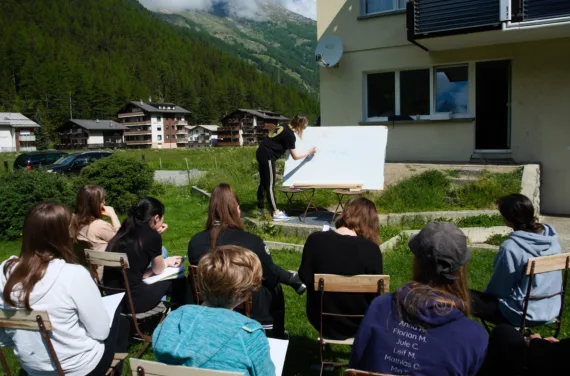
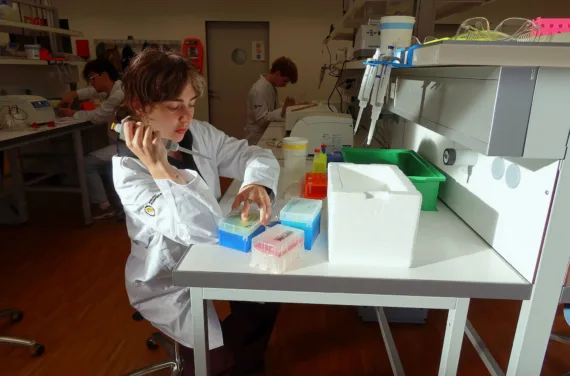
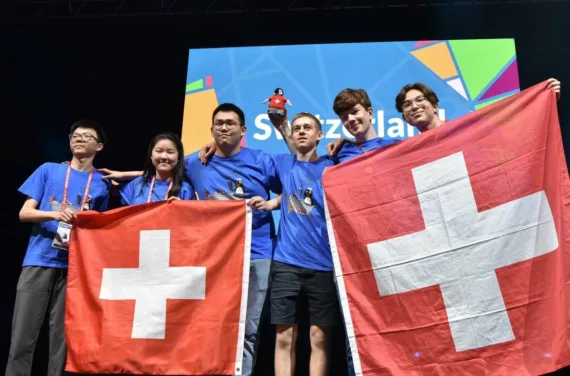
On the subject of volunteers: what are the main challenges and benefits of working with volunteers?
Mirjam Sager: Our 450 volunteers do an amazing job. They give up their free time to nurture bright minds. Our volunteers are very young and very dedicated. To put it in numbers, two out of three are under the age of 30, and they spend around two hours a week volunteering for us. There are two benefits: we offer participants peer-to-peer support, which contributes greatly to their learning success, and it is very motivating for the participants to see the commitment of the volunteers.
As Cyrille Boinay has already mentioned, it is very challenging to maintain or increase the level of volunteering. We need to recruit new volunteers and we want to make sure that our existing ones have fun, are recognised and well managed. The future of volunteering is moving towards more short-term assignments and less long-term commitment, so it will be harder to find people who are willing to commit to traditional roles such as treasurer or president. This is something we need to think about more.
Who supports the Science Olympiad financially or ideologically, and for what reasons?
Cyrille Boinay: Thanks to our volunteers, the amount of funding we need is relatively modest. Fundraising from foundations, companies and other partners finances the Science Olympiads. SERI, together with 22 cantons and the Principality of Liechtenstein, provides around half of the funding for the programme to support young researchers.
The main reason for this support is undoubtedly the desire to ensure Switzerland's capacity for innovation in the face of global competition. There may also be a variety of other reasons, ranging from corporate positioning strategies to donor gratitude.
About the Science Olympiads
The Science Olympiads encourage curious young people, awaken their scientific talent and creativity, and prove that science is exciting. Each year, workshops, camps, exams and competitions are held for 8,000 talented young students in biology, chemistry, geography, informatics, linguistics, mathematics, philosophy, physics, robotics and economics. The Science Olympiad is supported by the State Secretariat for Education, Research and Innovation together with the 'Schweizer Jugend forscht' foundation and the Swiss Study Foundation. On 14 September 2024, the Science Olympiad Association celebrated its 20th anniversary in Bern.
Contact
Author
